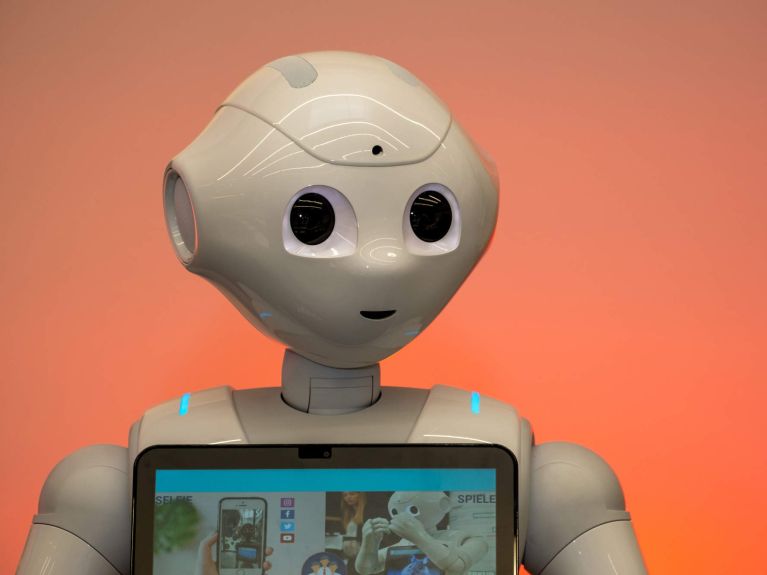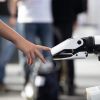AI in Germany - the figures
Scientists, business leaders and policymakers are working closely together on artificial intelligence. Seven figures about AI in Germany.

Germany is aiming to become a global leader in artificial intelligence. The Federal Government’s national AI strategy is supporting this ambition. But where is Germany in terms of AI research, and how well is the country doing when it comes to transfer from science into business, and in terms of national and international networking? Seven numbers about AI in Germany:
- 208 degree programmes on AI are offered at German universities and universities of applied sciences. And there are 171 data science programmes.
- In 2023 there were 508 startups specialising in AI in Germany. According to a study by the appliedAI Institute for Europe, over half of these are based in Berlin or Munich. However, one company which is known around the world actually has its head office in Heidelberg. Aleph Alpha has been shaping the development of artificial intelligence technology from its home in the university city in Baden-Württemberg.
- 6.3 billion euros were spent on AI software, services and related hardware in 2023 according to the Bitkom trade body. The AI market in Germany grew by a third compared to 2022.
- 42 programmes funded by federal and Länder governments are helping SMEs deploy AI technologies.
- 6 AI competence centres spread across 11 sites form a national network to share ideas, data and fresh thinking between research institutions.
- 928 AI patents were registered in by scientists in Germany in 2021.
- 12 action areas form the focus of the Federal Government’s AI strategy, from research to social dialogue about the chances and risks of artificial intelligence.


